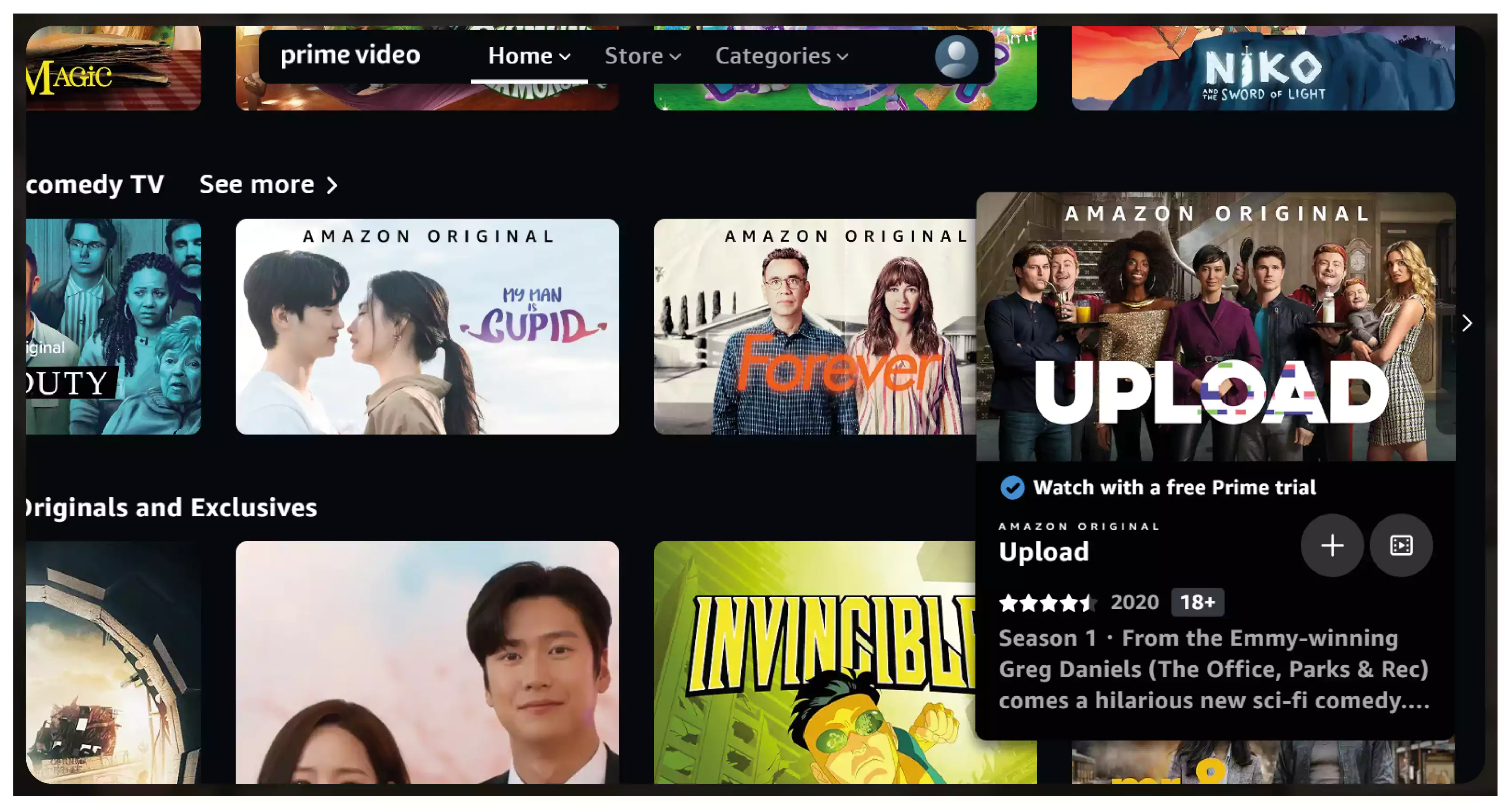
Introduction
In today's digital landscape, the vast array of television channels presents a challenge for viewers trying to stay updated on their favorite shows. However, web scraping has emerged as a powerful solution.
Using tools like Beautiful Soup, a Python library, enables the extraction of showtime information from many television channel websites.
This process involves parsing HTML/XML data to retrieve comprehensive showtime schedules, encompassing details such as current programs' days, times, and titles.
Businesses and viewers alike can easily access accurate and up-to-date TV show data by employing web scraping techniques, whether monitoring schedules for personal viewing or aggregating information for a website or app.
Web scraping streamlines the process, ensuring a seamless viewing experience for audiences worldwide.
The Need for Web Scraping TV Shows Data
 web scraping TV shows data is essential for efficiently aggregating schedules, obtaining comprehensive programming information, and making informed decisions. By leveraging scraping techniques, businesses can stay ahead in the competitive television landscape while enhancing the viewing experience for audiences worldwide.
web scraping TV shows data is essential for efficiently aggregating schedules, obtaining comprehensive programming information, and making informed decisions. By leveraging scraping techniques, businesses can stay ahead in the competitive television landscape while enhancing the viewing experience for audiences worldwide.Efficient Schedule Aggregation: In the era of numerous TV channels, aggregating showtime information can be overwhelming. However, with the convenience of web scraping, this process is streamlined, relieving businesses from the tedious task of extracting detailed schedules from each channel's website.
Comprehensive Data: Scraped details encompass essential information such as days, times (AM/PM), dates, and weeks when specific shows air. Additionally, currently airing show titles are gathered, providing a comprehensive overview of programming.
Multiple Channels Coverage: Websites like www.eternityready.tv/live-tv host numerous channels, each with its unique programming lineup. Scraping these websites allows for the simultaneous collection of data from many channels.
Customized Data Retrieval: With the power of web scraping techniques, businesses can now target and extract specific data points per their unique requirements. This flexibility empowers businesses, putting them in control of their data retrieval and catering to their diverse needs.
Real-time Updates: Web scraping facilitates retrieval of real-time data updates from TV channel websites. This ensures that the collected information remains current and promptly reflects any changes in programming schedules.
Automation and Scalability: Web scraping tools' automation capabilities enable the efficient extraction of data from multiple sources. This scalability allows for the collection of data from a large number of TV channels without manual intervention.
Enhanced Decision-making: Access to accurate and up-to-date TV show data empowers businesses to make informed decisions. Whether scheduling advertising slots, planning content acquisitions, or analyzing viewership trends, extract shows time data is valuable for decision-making processes.
Improved Viewer Experience: Web scraping plays a crucial role in enhancing the viewer experience by aggregating and presenting TV show data accurately. This means that businesses are benefiting from the data and contributing to a better service for their customers. Viewers can access up-to-date programming information, facilitating informed decisions on what to watch and when.
The Role of Web Scrapers in TV Show Data Collection
In TV show data collection, TV shows scrapers, affectionately known as trawlers, serve as indispensable tools. These entities wield potent technologies such as Beautiful Soup, enabling them to precisely navigate the intricate HTML/XML structures of TV channel websites. Here's a deeper dive into their pivotal role:
Accurate Extraction: TV shows scrapers meticulously traverse the labyrinthine codes of TV channel websites, extracting pertinent showtime information with utmost accuracy. This includes details such as days, times (AM/PM), dates, and even the titles of currently airing shows.
Leveraging Advanced Tools: Equipped with sophisticated technologies like Beautiful Soup, TV shows scrapers adeptly handle the complexities of HTML/XML parsing. This ensures efficient extraction of data from various sources while maintaining data integrity.
Regular Data Updates: Web scrapers ensure that the extracted TV show data remains current and up-to-date. They continuously monitor TV channel programming schedules and promptly reflect any changes, ensuring users have access to the latest information.
Automated Processes: Leveraging automation capabilities, TV shows scrapers streamline the data collection process. Automating repetitive tasks enhances efficiency and scalability, allowing for data extraction from many websites with minimal manual intervention.
Maintaining Data Quality: TV shows scrapers copyright the highest data quality standards, ensuring the extracted information is accurate and reliable. This reliability is paramount for businesses and viewers who rely on TV show data collection for decision-making and planning.
Facilitating Informed Decisions: By providing access to comprehensive and up-to-date TV show data, TV shows scrapers empower businesses to make informed decisions. Whether scheduling advertising slots, planning content acquisitions, or analyzing viewership trends, web scraping TV shows data is a valuable resource for decision-making processes.
TV Shows Data You Can Scrape from Different Websites
 When scraping TV show data from the website www.eternityready.tv/live-tv, which hosts 83 faith and family television channels, the following data fields can be extracted:
When scraping TV show data from the website www.eternityready.tv/live-tv, which hosts 83 faith and family television channels, the following data fields can be extracted:Channel Name: The name of each television channel hosted on the website.
Show Title: The title of the TV show currently airing on each channel.
Show Description: A brief description or synopsis of the TV show.
Show Time: The time the TV show is scheduled to air, including the AM/PM designation.
Day of the Week: The TV show is scheduled to air.
Date: The date on which the TV show is scheduled to air.
Week Number: The week within the year the TV show is scheduled to air.
Genre: The genre or category to which the TV show belongs (e.g., drama, comedy, documentary).
Rating: The audience rating or age restriction associated with the TV show.
Duration: The duration of the TV show, typically measured in minutes.
Repeat Schedule: Information indicating whether the TV show is a repeat airing or a new episode.
Next Episode: Details about the next episode of the TV show, including its title and air date.
Cast and Crew: This section provides information about the actors, directors, and other crew members involved in the TV show.
Image or Poster: A visual representation of the TV show, such as a promotional image or poster.
Link to More Information: This is a hyperlink to additional details about the TV show, such as its official website or IMDb page.
By extracting these data fields from the website www.eternityready.tv/live-tv, businesses, and viewers can access comprehensive information about the programming lineup of faith and family television channels, facilitating informed viewing decisions and scheduling.
How Web Scraping TV Shows Data Can Benefit Businesses and Viewers?
Web scraping TV shows data offers numerous use cases that benefit businesses and viewers alike. Here are some critical scenarios where the use of a TV shows scraper proves invaluable:
Personalized Viewing Experience: By collecting TV show data from various channels, streaming platforms, and TV guide websites, businesses can develop personalized recommendations for viewers based on their preferences and viewing history. This enhances the viewer experience by suggesting relevant content tailored to their interests.
Content Aggregation and Discovery: TV show data collection enables businesses to aggregate information from multiple sources and present it in a centralized platform. This allows viewers to discover new shows, explore different genres, and access comprehensive information about their favorite programs in one place.
Advertising and Marketing: With access to detailed TV show data, advertisers and marketers can target their campaigns more effectively. They can analyze viewership trends, identify popular shows, and strategically place advertisements during peak viewing times to maximize reach and engagement.
Competitive Analysis: Businesses can use TV show data scraping to conduct competitive analysis and gain insights into the programming strategies of rival networks and streaming services. By monitoring competitor schedules and identifying trends, businesses can adjust their programming lineup to stay ahead.
TV Network Planning: TV networks can scrape TV shows data data to plan their programming schedules more effectively. By analyzing viewership patterns, audience demographics, and show popularity, networks can optimize their lineup to attract and retain viewers, ultimately driving higher ratings and advertising revenue.
Viewer Engagement and Interaction: TV show data collection can fuel interactive experiences for viewers, such as real-time polls, quizzes, and live discussions related to ongoing shows. This fosters community engagement and loyalty, as viewers feel more connected to the content and each other.
Research and Analysis: Researchers and analysts can scrape TV shows data to study trends in television viewing behavior, audience preferences, and content consumption patterns. This data can inform academic studies, market research reports, and industry insights, contributing to a deeper understanding of the media landscape.
Conclusion
Web scraping has transformed TV show data collection, empowering different OTT platforms to deliver precise and current showtime details to viewers. Leveraging advanced scraping technologies and adhering to industry best practices, OTT Scrape ensures a seamless viewing experience for audiences worldwide. Stay informed with accurate showtime information – choose OTT Scrape today!
#ScrapingTVShowsData
#ScrapeTVShowsData
#TVShowsDataScrapingServices
#TVShowsDataExtraction
#ExtractTVShowsData
#TVShowsDataCollection
#WebScrapingTVShowsData